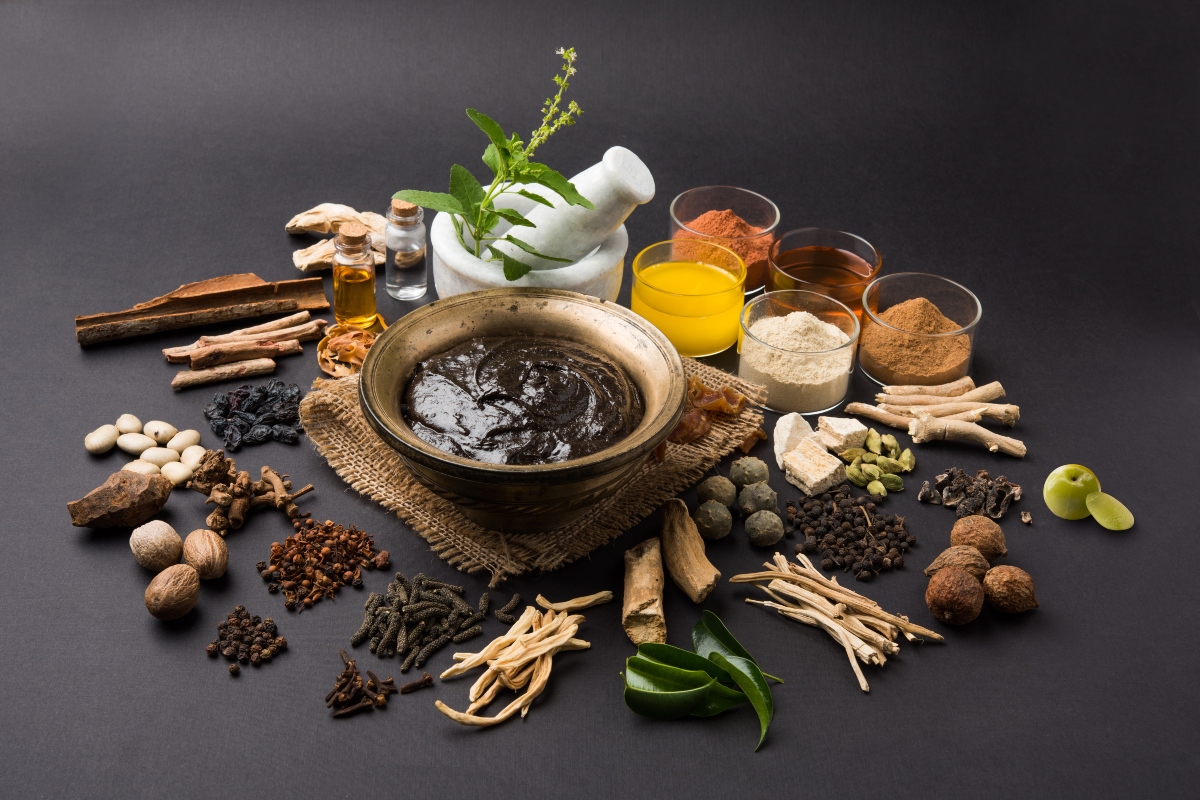Embracing Ayurveda: Natural Herbs for Diabetes Management
Diabetes is a chronic condition that affects millions of people worldwide, significantly altering the way the body manages blood sugar. As conventional treatments continue to evolve, many individuals are turning to holistic, natural approaches. Ayurveda—an ancient system of medicine from India—offers a treasure trove of herbal remedies believed to aid in balancing blood sugar levels, enhancing metabolic health, and promoting overall well-being. In this comprehensive blog post, we’ll explore the benefits of select Ayurvedic herbs and how their unique properties contribute to managing diabetes.
Understanding Diabetes and Its Challenges
Diabetes is primarily characterized by the body’s difficulty in either producing or effectively using insulin, a hormone critical for controlling blood sugar levels. When insulin is deficient or inefficient, blood sugar can reach damaging levels, leading to complications ranging from cardiovascular issues to neuropathy and vision problems. Managing diabetes typically involves a careful balance of diet, exercise, and sometimes medication. However, many patients are also seeking natural adjuncts to support conventional treatments—this is where Ayurvedic herbs come into play.
Ayurveda and Its Holistic Approach to Health
Ayurveda is founded on the principles of balance and harmony within the body, mind, and spirit. Rather than focusing solely on the symptoms, Ayurveda seeks to address the root causes of diseases, including diabetes. It views the disease as an imbalance in the body’s elemental forces, often influenced by diet, lifestyle, and genetic factors.
The Ayurvedic approach to managing diabetes involves the use of herbs and natural ingredients that work synergistically to:
- Enhance insulin production: Some herbs support the pancreas, assisting in natural insulin synthesis.
- Improve insulin sensitivity: Certain ingredients help the body’s cells respond more effectively to insulin.
- Reduce sugar cravings: By acting on taste receptors and metabolic pathways, these herbs can help manage the desire for sugar.
- Offer antioxidant support: Many herbal remedies provide protection against oxidative stress, a common challenge in diabetic conditions.
This holistic perspective encourages individuals not only to take care of their physical symptoms but also to improve their overall lifestyle, promoting long-term health.
Key Ayurvedic Herbs Beneficial in Diabetes
Ayurveda employs a variety of herbs, each with its own unique benefits for managing diabetes. Here we explore some of the most influential Ayurvedic herbs:
Costus Pictus (Costus Igenus)
Costus Pictus has a long-standing reputation in Ayurvedic medicine for its potential to regulate blood sugar levels. Traditionally, this herb is believed to:
- Stimulate Insulin Production: It aids in supporting the pancreatic beta cells, which are responsible for insulin secretion.
- Regulate Glucose Metabolism: Its natural compounds help maintain an optimal balance of blood sugar, preventing spikes and crashes.
Discussion:
The effectiveness of Costus Pictus is tied to its ability to work on multiple levels. It not only supports the production of insulin but also ensures that glucose is properly metabolized by the body’s cells. This dual-action mechanism makes it a powerful ally for those looking to moderate their blood sugar levels naturally.
Green Tea
Green Tea is more than just a popular beverage; it is celebrated in Ayurveda for its potent antioxidant properties:
- Antioxidant Protection: The high concentration of polyphenols in green tea combats oxidative stress, a condition that can impair insulin sensitivity.
- Enhancement of Glucose Metabolism: Regular consumption of green tea is linked with improved glucose utilization, allowing the body to use sugar more efficiently.
Discussion:
Oxidative stress is a major concern for those managing diabetes since free radicals can damage cells, including those in the pancreas and liver. Green tea’s antioxidants provide a protective shield, helping these cells function optimally. Furthermore, improved glucose metabolism means that cells receive a steady and controlled supply of energy without drastic peaks in blood sugar.
Cinnamon
Cinnamon has been a staple in both culinary and medicinal traditions due to its unique properties:
- Increases Insulin Sensitivity: Cinnamon helps the body’s cells to respond better to insulin, facilitating the uptake of glucose.
- Supports Blood Sugar Regulation: Its compounds have been shown to modulate the enzymes involved in carbohydrate metabolism, contributing to balanced blood sugar levels.
Discussion:
The use of cinnamon in diabetes management is well-documented. By enhancing insulin sensitivity, cinnamon allows for more efficient glucose uptake by cells, thereby reducing the risk of hyperglycemia (high blood sugar). Its action at the enzymatic level also suggests that cinnamon may help slow down the digestion of carbohydrates, preventing sudden surges in blood sugar after meals.
Avaram Channa
Though less commonly known outside traditional circles, Avaram Channa plays an important role in supporting metabolic health:
- Maintains Metabolic Balance: This herb is often used to support overall metabolic functions, ensuring that the body’s systems work in concert.
- Helps Stabilize Blood Sugar: By contributing to the body’s metabolic equilibrium, Avaram Channa assists in maintaining consistent blood sugar levels.
Discussion:
Avaram Channa’s role is subtle yet impactful—it supports the underlying metabolic processes that govern how the body converts food into energy. By ensuring that these processes remain balanced, it indirectly helps to regulate blood sugar levels. This herb is particularly valued for its gentle yet effective nature, making it suitable for long-term management of metabolic health.
Gymnema Sylvestre
Gymnema Sylvestre has earned the nickname “sugar destroyer” due to its remarkable properties in managing cravings and blood sugar:
- Reduces Sugar Cravings: Gymnema can help diminish the intensity of sugar cravings by blocking sugar receptors in the taste buds.
- Enhances Insulin Function: It supports the overall function of insulin, ensuring that glucose is properly utilized by the body.
Discussion:
For those battling diabetes, sugar cravings can be a significant hurdle. Gymnema’s ability to reduce these cravings makes it a valuable tool in curbing unnecessary sugar intake. Additionally, by enhancing insulin function, Gymnema contributes to a more balanced uptake and utilization of glucose, thus playing a dual role in diabetes management.
Stevia
Stevia is widely recognized as a natural sweetener, but its benefits extend beyond simply replacing sugar:
- Natural Blood Sugar Modulator: Unlike synthetic sweeteners, Stevia has been shown to assist in lowering blood sugar levels naturally.
- Improves Insulin Sensitivity: Its use in the diet can lead to better insulin response, thereby improving the body’s metabolic efficiency.
Discussion:
Stevia offers a guilt-free way to satisfy a sweet tooth while still adhering to a diabetic-friendly diet. Its inherent properties not only help in moderating blood sugar levels but also contribute to overall metabolic health. By substituting common sugar with Stevia, individuals can enjoy sweet flavors without the associated risks of spikes in blood glucose.
Giloy
Giloy is another revered herb in Ayurveda, often celebrated for its immune-boosting properties:
- Boosts Immunity: Giloy enhances the body’s natural defenses, which is crucial for individuals with chronic conditions like diabetes.
- Supports Natural Blood Sugar Regulation: It assists in maintaining balanced blood sugar levels, contributing to overall metabolic health.
Discussion:
The connection between robust immune function and metabolic health cannot be overstated. In diabetes, where the body is constantly battling fluctuations in blood sugar, a strong immune system is essential for overall health. Giloy not only strengthens immune defenses but also plays a role in smoothing out blood sugar variations, thus acting as a supportive herb in holistic diabetes management.
Integrating Ayurvedic Herbs into a Holistic Diabetes Regimen
While each of these herbs offers unique benefits, their true power lies in their ability to work synergistically. When integrated into a daily health routine, these Ayurvedic herbs can offer a natural complement to modern diabetes management strategies. Here’s how to consider incorporating them:
- Daily Dietary Inclusion: Herbs such as cinnamon and Stevia can easily become part of everyday meals. Sprinkle cinnamon on breakfast oatmeal or prepare a beverage sweetened with Stevia to enjoy their benefits seamlessly.
- Herbal Teas and Infusions: Green tea and infusions made with Gymnema can be a soothing way to integrate these herbs into your routine while reaping their antioxidant and metabolic benefits.
- Supplementation with Caution: For some herbs like Costus Pictus, Avaram Channa, and Giloy, which may be less familiar as common culinary additions, consider exploring standardized herbal supplements. When doing so, it’s essential to opt for high-quality, reputable sources and to consult with a healthcare professional before initiating any new regimen.
Lifestyle Considerations and Ayurvedic Practices
Ayurveda is not just about herbs—it embraces an entire lifestyle aimed at achieving balance. Alongside herbal remedies, consider the following holistic practices:
Diet and Nutrition
A balanced, nutrient-rich diet is vital for managing diabetes. Focus on:
- Whole Foods: Prioritize whole grains, fruits, vegetables, and lean proteins over processed foods.
- Low Glycemic Index Choices: Foods that release sugar slowly into the bloodstream can help stabilize blood sugar levels.
- Regular Meals: Aim for balanced, timely meals to avoid spikes or dips in blood sugar.
Regular Physical Activity
Exercise plays an essential role in enhancing insulin sensitivity and overall metabolism:
- Aerobic Exercise: Activities like brisk walking, cycling, or swimming help the body use blood sugar more efficiently.
- Strength Training: Incorporating resistance exercises not only builds muscle mass but also improves metabolic function.
- Mind-Body Practices: Yoga and meditation, key components of Ayurvedic lifestyle, help reduce stress—a known trigger for blood sugar fluctuations.
Stress Management
Chronic stress can exacerbate diabetes. Ayurvedic practices, such as mindfulness and meditation, help:
- Lower Stress Hormones: Reducing cortisol levels can have a direct, positive impact on blood sugar regulation.
- Enhance Overall Well-being: A calm mind contributes to a balanced body, reinforcing the effects of herbal remedies.
Conclusion
Ayurveda offers a natural pathway to manage diabetes by harnessing the healing properties of herbs honed over millennia. Herbs like Costus Pictus, Green Tea, Cinnamon, Avaram Channa, Gymnema Sylvestre, Stevia, and Giloy each contribute unique benefits—from stimulating insulin production and enhancing insulin sensitivity to reducing sugar cravings and boosting antioxidant defenses. These herbs, when integrated into a balanced lifestyle, offer a promising adjunct to conventional diabetes management strategies.
By embracing the holistic wisdom of Ayurveda, individuals can take a proactive role in supporting their metabolic health. From culinary inclusions to carefully chosen supplements and mindful lifestyle practices, the natural world provides abundant resources to help balance blood sugar levels and promote overall wellness.
Remember that while Ayurvedic herbs offer significant benefits, they work best when complemented by a healthy lifestyle that includes balanced nutrition, regular physical activity, and stress management techniques. As always, it is important to consult with healthcare professionals before introducing any new herbal regimen into your diabetes management plan.
Embrace the journey towards natural diabetes management with Ayurveda’s time-tested herbal remedies and discover a world where balance, harmony, and good health go hand in hand.

